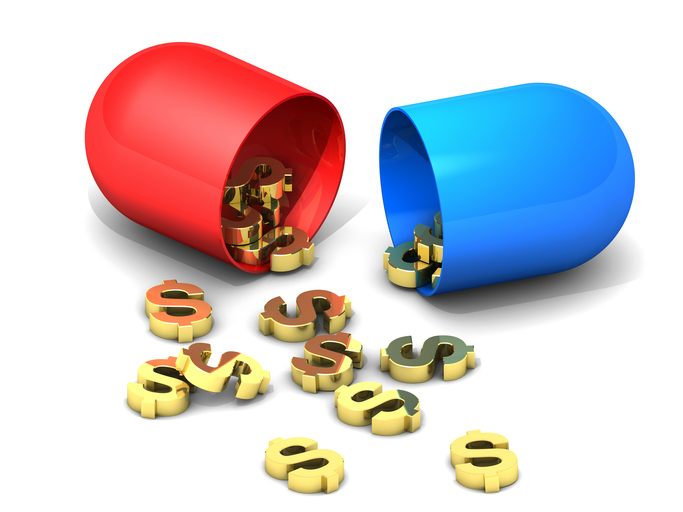
This article has been updated with comments from Proteus and Otsuka.
Once valued at $1.5 billion, Proteus Digital Health may now sell to its largest shareholder for $15 million in cash. A Delaware bankruptcy court approved Otsuka Pharmaceutical’s bid to acquire Proteus on Thursday, despite complaints from other shareholders that the deal was “nothing more than a giveaway.”
“We are pleased that the sale has been approved, and that the advancements Proteus made in digital medicine are in the hands of a buyer with a demonstrated interest in furthering this technology,” a spokeswoman for Proteus wrote in an email.
Proteus, which was founded in 2002, developed a tiny sensor that could be embedded in pills to track adherence. It had struck a licensing agreement with Otsuka, and the companies received FDA approval three years ago for the first medication with an embedded sensor: an antipsychotic medication called Abilify MyCite.
But in the last year, Proteus faced a cash crunch, after failing to close an expected $100 million funding round. The medication’s $1,650 price tag might have been hard to swallow, coupled with limited evidence that it improved adherence.
Proteus filed for bankruptcy in June. Later that month, Otsuka filed its $15 million “stalking horse” bid for Proteus, setting the pace for a future auction. Since no other bidders emerged by the Aug. 4 date, Otsuka’s prevailed. But a group of shareholders representing a 16% stake in Proteus, including Novartis and two investment firms, called for increased scrutiny of the deal. According to court documents, Otsuka holds about 19.8% of Proteus’ outstanding senior preferred notes and 10% of all of its outstanding equity.

Health Benefit Consultants, Share Your Expert Insights in Our Survey
Share some of the trends you are seeing among your clients across healthcare, including chronic conditions, behavioral health, healthcare navigation, and more.
They said they hadn’t placed a bid because they needed more time to evaluate the deal.
“The process was flawed from the beginning. The timeline was too short for third parties to make meaningful bids on highly specialized assets during a pandemic,” they wrote in their objection.
Now, with the court’s approval, Otsuka will be able to integrate Proteus’ business with its own. Proteus will look to sell the remainder of its assets that were not included in the purchase agreement.
In an email, a spokesman for Otsuka wrote that the company would strengthen its research and product development plan “to develop a next generation digital medicine that supports patient wellness, treatment decisions and the connections between patients and their healthcare teams.”
“The lessons learned in the development and commercialization of the Abilify MyCite System will continue to be instrumental in guiding how we approach future advancements across the organization,” he added.
Photo credit: Devrimb, Getty Images














